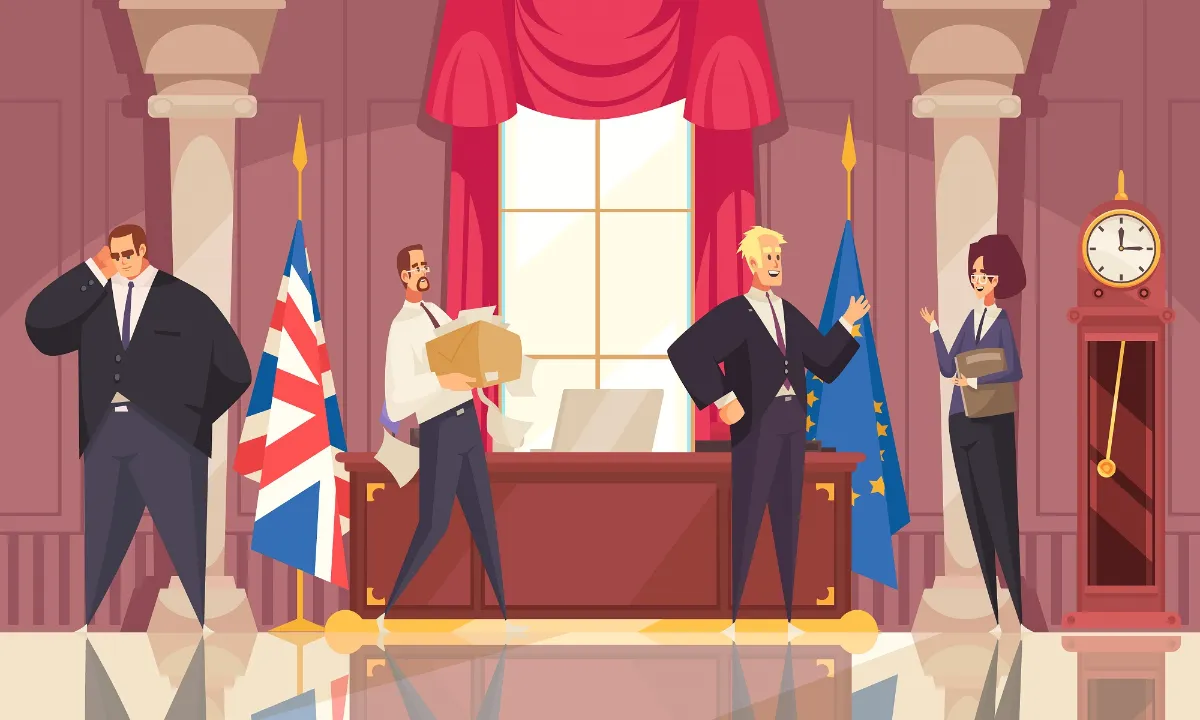In a world where power is concentrated within the walls of government, the very essence of democracy is at stake. Lobbying, a practice that has become synonymous with the corridors of power, challenges the integrity of our democratic institutions. The influence lobbyists wield and the methods they employ to gain favor are a cause for concern, as they impact not only public office holders but also the voices of the people they represent. It is crucial to examine the ethical implications of lobbying and its effect on democracy as a whole, ensuring that the values upon which our nations are built stand firm.
Lobbying: Challenging the Integrity of Our Democracy
At the heart of the debate lies the question of whether lobbying undermines the core principles of democracy. While citizen participation and representation are the bedrock of a democratic society, the presence of lobbyists and their deep pockets can skew the balance of power. Lobbyists, both individuals and interest groups, often have a financial stake in the policies they advocate for, which raises concerns about conflicts of interest and the primacy of the public good.
Furthermore, the disproportionate access lobbyists have to lawmakers undermines the ideal of equal representation. While every citizen’s voice should carry equal weight, lobbyists often possess the financial resources and expertise that can sway decision-making in their favor. This imbalance tilts the scales away from the people and towards those with the means to exert their influence.

How Lobbyists Use Money to Gain Influence in Politics
Money, as the age-old adage goes, makes the world go round. Unfortunately, it also has the power to turn the wheels of politics. Lobbyists understand this all too well, as they strategically deploy financial resources to secure influence and shape legislation.
One of the primary ways lobbyists use money to sway decision-makers is through campaign contributions. By supporting political candidates, lobbyists create a network of indebted office holders who may feel compelled to reciprocate their generosity in the form of favorable policies. This not only undermines the integrity of the decision-making process but also raises concerns about the undue influence of money on democracy.
Moreover, lobbyists use their financial clout to fund advocacy campaigns that benefit their interests. By financing research studies, public awareness campaigns, and media advertisements, they shape public opinion and nudge policy debates in their favor. This tactic blurs the line between genuine discourse and strategic manipulation, making it increasingly difficult for the public to discern whose interests are truly being represented.
The Dangers of Lobbyists Taking Advantage of Political Office Holders
In a system that relies on elected officials to be the stewards of public interest, the risks of lobbyists exploiting their positions are significant. By leveraging personal relationships, lavish gifts, or promises of future employment, individuals from office holders to their staff members can be compromised.
One of the most insidious dangers of this exploitation is the potential for decision-makers to prioritize the interests of lobbyists over the needs of the public. When financial gain or personal benefits cloud the judgment of those in power, democracy suffers. Policy outcomes no longer reflect the will of the people but rather the agendas of the well-connected. This erosion of public trust further widens the gap between citizens and their elected representatives, corroding the very foundations of democracy.
Exploring the Power of Lobbyists and Their Influence on Policy Outcomes
The impact of lobbying on policy outcomes cannot be understated. Lobbyists have the potential to shape legislation, steer public debates, and influence regulatory processes. Their power lies not only in their ability to sway individual politicians but also in their expertise and connections within the political landscape.
Yet, the influence lobbyists wield is not limited to their direct interactions with public office holders. By participating in advisory committees, engaging in public consultations, and providing expert testimony, lobbyists shape policy discussions at every level. This ability to mold the narrative often leads to outcomes that favor their interests over those of the general population.

Assessing the Impact of Lobbying on Political Representation
Central to the democratic ethos is the concept of political representation – the notion that elected officials act as intermediaries between the people and those who hold power. However, lobbying has the potential to distort this ideal, leaving room for doubt about whether the interests of the people truly take precedence.
One way in which lobbying affects political representation is by narrowing the scope of policy debates. Issues that garner significant lobbying attention receive a disproportionate amount of focus, while less well-resourced causes struggle to be heard. This imbalance diminishes the ability of elected representatives to fully understand and address the diverse needs and concerns of their constituents.
Moreover, the revolving door between lobbyists and government positions blurs the line between public service and private interest. When individuals move seamlessly between lobbying and political office, the potential for conflicts of interest and an erosion of public trust increases. This undermines the public’s confidence in the representatives they have elected, weakening the very fabric of democracy.
Closing Thoughts
As we grapple with the ethics of lobbying, arriving at a satisfactory resolution will require a collective effort. Striking a delicate balance between the right to advocate for one’s interests and the need for transparent and accountable decision-making is paramount.
Increased regulation and transparency surrounding lobbying activities are crucial tools in safeguarding the integrity of democratic institutions. By shining a light on the financial ties between lobbyists and public officials, we can ensure that decisions are, first and foremost, in the best interest of the public.
Furthermore, fostering a culture of political engagement among citizens is a powerful counterbalance to the influence of lobbyists. When individuals actively participate in the democratic process, conveying their concerns, and demanding accountability, the collective voice of the people becomes an unstoppable force.
As Thomas Jefferson once wrote, “A well-informed electorate is a prerequisite to democracy.” By arming ourselves with knowledge and advocating for transparency and ethical practices, we can fortify our democracies against undue influence, ensuring that the voice of the people remains the cornerstone of our collective future.

